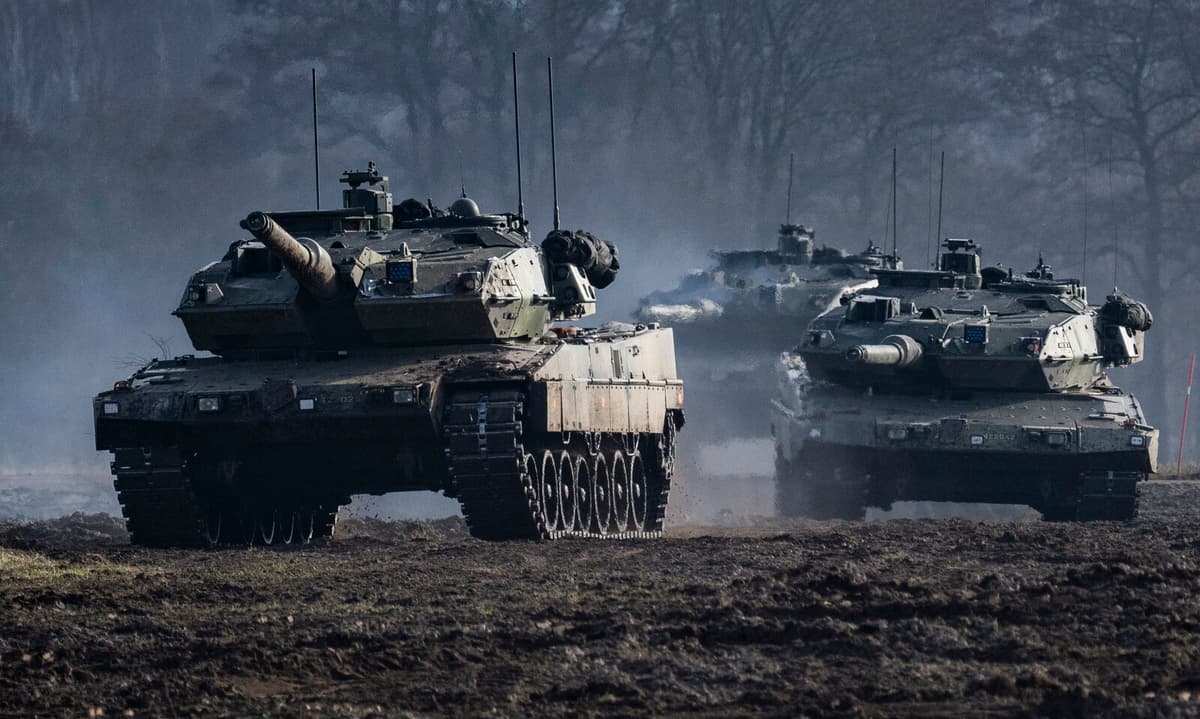On one hand, there is Russia with its ongoing war in Ukraine and suspected hybrid attacks in the Baltic Sea. On the other hand, there is the USA's new-old President Donald Trump, threatening to withdraw unless Europe takes greater responsibility for its own security – at the same time as he is also casting covetous glances at Danish Greenland.
It's no wonder, then, that defense issues are acute in EU politics right now.
There is a shared sense of how serious it is. Defense stands at the center of the EU's agenda, notes a heavyweight EU source ahead of the meeting of heads of state and government in Brussels on Monday.
No to Loans
In principle, almost the only question on the agenda is how everyone can invest more in defense, both to help Ukraine and to maintain support from the USA?
The alternatives are many, but not always popular.
Strong support exists for taking out a joint large EU loan, in the same way as when the economy needed support after the coronavirus pandemic. To this, Sweden is saying a clear no for now.
I'm not going to accept any change on this issue now. But we must be aware that other countries will come back with demands that we won't appreciate. And then we and Germany and maybe a few other countries will have to stand up to make tough priorities, said Prime Minister Ulf Kristersson (The Moderate Party) in the Riksdag's EU Committee on Friday.
"Learn Russian"
Other variants involve attracting more private investments, reprioritizing in the next long-term EU budget, and even introducing new direct EU fees.
No decisions are expected yet, but Monday's discussion is to pave the way for a push from the EU Commission already in mid-March.
NATO's Secretary-General Mark Rutte – who is participating as a special guest at the EU summit – has clearly pointed out what he believes can be saved on instead.
European countries easily spend up to a quarter of their national income on pensions, healthcare, and social security systems, and we only need a small part of that money to make defense much stronger, Rutte said before the EU Parliament's Foreign Affairs Committee three weeks ago.
He was equally clear about the consequences of not beefing up.
If you don't do it, then make sure you learn Russian or move to New Zealand, Rutte said.
Here are five important European defense dates this spring:
• 3 February: EU countries hold an informal summit in Brussels on defense, with NATO chief Mark Rutte and Britain's Prime Minister Keir Starmer as special guests.
• 13 February: NATO defense ministers meet in Brussels – for the first time with new US colleague Pete Hegseth in place.
• 19 March: The EU Commission presents its "white book" on future defense policy and how it will be financed.
• 24–25 June: NATO countries hold a summit in The Hague, under heavy pressure from US President Donald Trump to increase defense spending.
• 26–27 June: EU countries hold a summit in Brussels.






